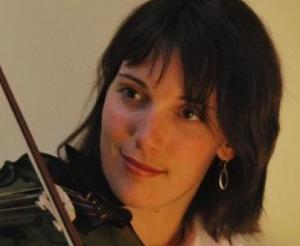Machine learning in cognitive neuroscience: questions, challenges and potential opportunities (Talk)
In this talk I will describe the main types of research questions and neuroimaging tools used in my work in human cognitive neuroscience (with foci in audition and sleep), some of the existing approaches used to analyze our data, and their limitations. I will then discuss the main practical obstacles to applying machine learning methods in our field. Several of my ongoing and planned projects include research questions that could be addressed and perhaps considerably extended using machine learning approaches; I will describe some specific datasets and problems, with the goal of exploring ideas and potentially opportunities for collaboration.
Biography: I am a Postdoctoral Fellow at the Eberhard Karls University of Tübingen, under the supervision of Prof. Jan Born. I received a Ph.D. in Neuroscience in 2016 from McGill University (Prof. Robert Zatorre), an M.Sc. (Research) in Brain and Cognitive Science in 2009 from the University of Amsterdam, and a B.Sc. (Honours) in Psychology from the University of Ottawa in 2006. Between 2006 and 2009 I worked as a Human Behaviour and Performance specialist and trainer at the European Space Agency (European Astronaut Centre, Cologne, Germany), and between 2002 and 2005 I worked as a flight and theory instructor on light aircraft at several airports in Ottawa, Canada. My research interests are in the domains of human performance of complex skills, auditory cognitive neuroscience, sleep-related memory consolidation, cognitive ageing, cognitive workload management, and multimodal neuroimaging. I am currently obtaining experience in functional connectivity, deep learning, and sleep experimental methods. For a link to my full CV, please email m


